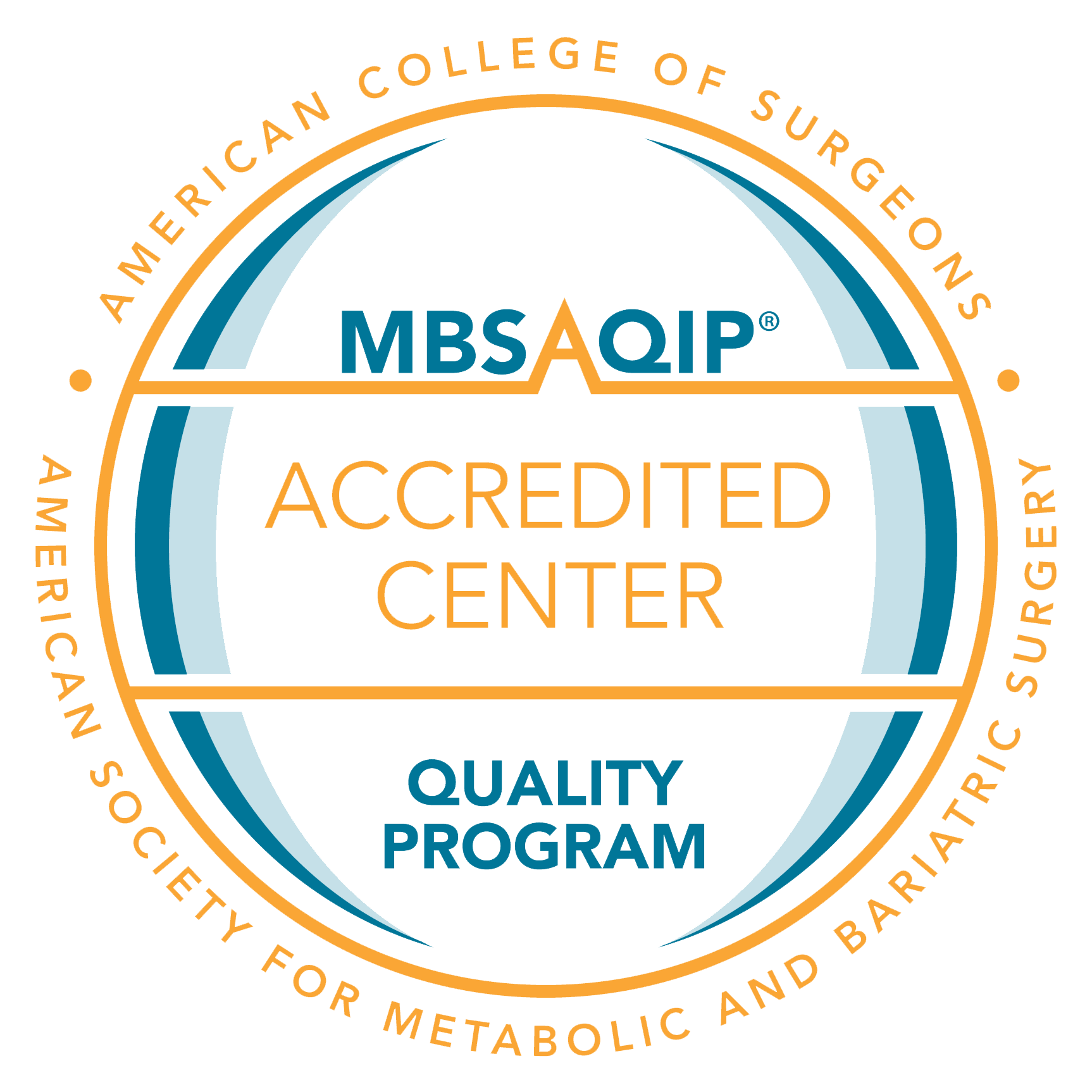Weight Loss Surgery
Click Here to Register for Our Free Information Session
Our Weight Loss Surgery Center at Carteret Health Care includes a team of highly motivated and experienced bariatric surgeons, nurses and support staff who care for gastric sleeve and gastric bypass surgery patients. This includes an efficient and friendly preoperative evaluation and screening process, along with a comprehensive long-term follow-up.
The National Institute of Health supports the use of bariatric surgery in the severely obese, citing studies that show the procedures often reduce or eliminate many obesity-related conditions. Some of these conditions include hypertension, sleep apnea, diabetes, arthritis, vascular disease and some forms of cancer.
It’s important to emphasize that weight loss surgery is in no way to be considered cosmetic surgery. Obesity is a chronic, frequently progressing, life-threatening disease. This surgery can improve the lives of those suffering from morbid obesity and the multiple medical illnesses associated with being overweight.
Former patients Eddie and Tasha share their Carteret Health Care Weight Loss Surgery journey:
The Toll of Morbid Obesity
Obesity Health Risks
The following are some of the health risks people with morbid obesity face that can be prevented or managed with bariatric surgery:
Adult-onset diabetes is a frequent concern for people with obesity. Diabetes is a lifelong condition that has no cure. Thankfully, diabetes is very manageable, but it does require patients to make significant lifestyle changes. Bariatric surgery also requires patients to make lifestyle changes, but these are less intense than the changes needed for diabetes and easier to manage.
Heart disease is the leading cause of death for both men and women. Obesity is a common cause of heart disease. Part of what makes heart disease so dangerous is that it rarely manifests noticeable symptoms until a heart attack or stroke occurs. Losing weight and making appropriate lifestyle changes goes a long way in preventing heart disease.
The harder your heart has to work to pump blood throughout the body, the more pressure it exerts on the arteries. High blood pressure raises a person’s risk of heart attack, stroke, and kidney disease. Thankfully, high blood pressure can be reversed before it results in serious complications when a patient makes lifestyle changes.
Gallbladder disease is a common problem for people with obesity. Rapid weight loss from bariatric surgery can also result in gallstones, but this should occur less frequently as your body adjusts to the new weight and lifestyle changes.
Obesity puts increased strain on joints, which is why osteoarthritis in the knees, hips, and back is common in people who are morbidly obese. Losing weight will ease the strain on your joints and can even help relieve symptoms if you have already developed osteoarthritis.
Loud snoring is often a sign that a person has sleep apnea, a condition that causes a person to stop breathing periodically while sleeping. Sleep apnea is very common in people who are overweight and can result in serious health complications like heart disease, high blood pressure, and stroke. Losing weight can be helpful in relieving the effects of sleep apnea.
Common cardiac procedures:
High blood pressure from obesity can result in kidney disease, which is a serious medical problem that can be life threatening if left untreated.
The Weight Loss Procedures We Offer at Carteret Health Care
We offer these surgical weight loss procedures:
This procedure works by essentially making your stomach “smaller.” In an adjustable gastric band operation, the surgeon wraps a band around the stomach that creates a pouch in the upper part of the stomach. When this pouch fills, you will start to feel full, and this fullness feeling should last much longer than you’re normally used to. Banding of the stomach does not affect digestion or absorption. Food should still pass through your system as usual, except you will not feel hungry as often. Doctors can adjust the band as necessary over time.
In this procedure, the stomach is thinned down to a “sleeve” using a stapling device. The rest of the stomach is then removed, leaving the new, thinner alternative to function in its place. This sleeve makes it harder for you to eat quickly and creates a feeling of fullness faster. Sleeve gastrectomy is one of the most basic weight loss procedures. In most cases, this operation alone is enough to achieve the desired results, but additional procedures may follow if the patient has not achieved adequate weight loss. This operation has been shown to help patients lose an average of 66% of their excess weight.
There are two components to gastric bypass surgery – shrinking the stomach size and rerouting the digestive tract so that food reaches the small intestine faster. First, a small pouch is created in the stomach that can only hold a small amount of food before you feel full, much like the sleeve gastrectomy procedure. This pouch is then strategically placed so that food bypasses the rest of the stomach and is delivered to the small intestine faster. By bypassing the stomach and parts of the small intestine, your body absorbs less fat and fewer calories. The drawback to this procedure is that it also means the body will be absorbing fewer nutrients, but this shortcoming can be overcome by creating a healthy diet with our team. Gastric bypass surgery is extremely effective but requires the patient to commit to some drastic lifestyle changes. It is only recommended for patients who are suffering from serious side effects of obesity.
And others, such as revision surgery
Weight Loss Success Stories
Free Weight Loss Surgery educational sessions are held on the second Monday of each month at the Crystal Coast Civic Center. Dr. Juozas Zavadzkas of Carteret Health Care Surgical Group will share everything you want to know about the gastric sleeve and gastric bypass surgery. An Active Support Group meets at the same time.
For more information on weight loss or our monthly educational sessions, call 252-247-2101 or email us.
Register Now
We want to help you meet your weight loss goals. Complete this form to request more information on weight loss or register to attend a free Weight Loss Surgery educational session (held on the second Monday of each month at the Crystal Coast Civic Center).
Awards and Recognition
Certified by The Joint Commission for Bariatric Surgery – 1st in nation and NC, April 2017
Achieved national accreditation from the Metabolic and Bariatric Surgery Accreditation and Quality Improvement Program.
Recognized as a Blue Distinction® Center+ for Bariatric Surgery designation as part of the Blue Distinction Specialty Care program by Blue Cross and Blue Shield of North Carolina.
Names one of America's Best Hospitals for Bariatrics by the Women's Choice Award.






